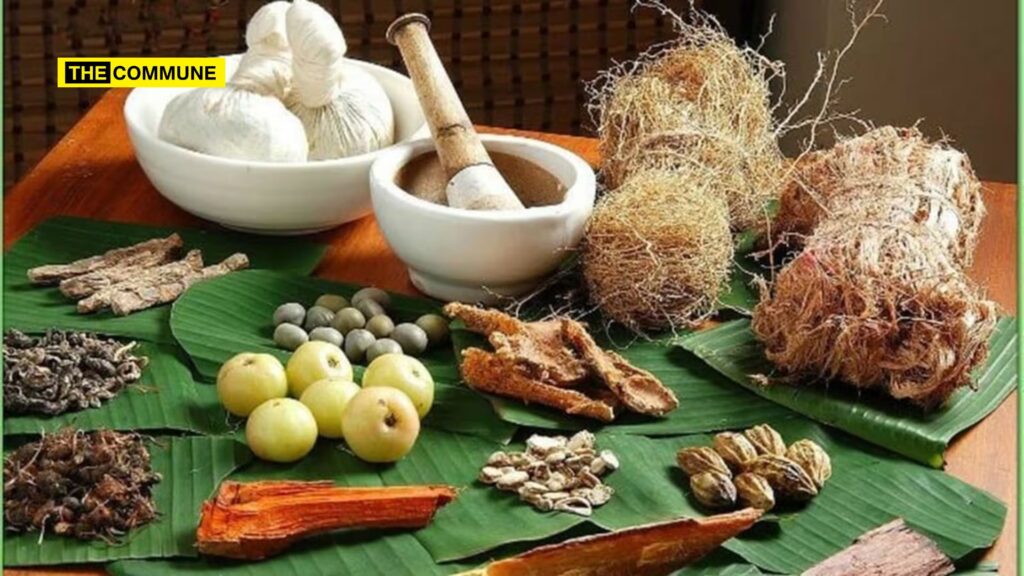The ICD (International Classification of Diseases) serves as a universal language, enabling healthcare professionals to exchange standardized information globally. Within the 11th revision, the traditional medicine module offers a set of diagnostic categories for systematically collecting and reporting information on traditional medicine conditions in a standardized and internationally comparable fashion.
The World Health Organization (WHO) launched the TM2 module of the International Classification of Diseases (ICD) 11 series in New Delhi on 10th January 2024. This module will include the data and terminology of diseases based on Ayurveda, Siddha, and Unani (ASU) systems of medicine.
This effort will lead to global uniformity in ASU medicine as a code of vocabulary defining diseases. It will also strengthen and expand India’s public healthcare delivery system, research, Ayush insurance coverage, research and development, and policymaking systems. It will also help in the formulation of future strategies to control various diseases in the society.
The Ministry of Ayush has developed the Code for Ayurveda, Siddha, and Unani Medicine through the National Ayush Morbidity and Standardized Electronic Portal (NAMSTE). The Ministry of Ayush has also signed a Donor Agreement with the WHO for the same. The Central Bureau of Health Intelligence (CBHI) is an agency under the Ministry of Health and Family Welfare that serves as the WHO Collaboration Centre for ICD-related activities.
Example of ASU Disease Terminology: Infectious diseases like Malaria and lifestyle diseases like chronic insomnia are included in this classification. Ayurveda, Siddhas, and Unani, Vertigo Guidance Disorder (parent name), commonly recognized by the three traditional systems, as a nervous system disorder known in Ayurveda as ‘Bhramaha’ siddha as ‘Ajal Kirkrippu’ and in Unani as ‘Sadra-o-Dwar’.
History of the initiative
After numerous consultations spanning a decade, ICD-11 has successfully incorporated Module-1, encompassing traditional medicine conditions originating from ancient China, now widely utilized in China, Japan, Korea, and globally.
With approximately 17,000 distinct codes and over 120,000 codable terms, all now in digital format, the eleventh revision officially took effect in January 2022.
Utilizing ICD-11’s traditional medicine chapter with other sections on neoplasms, patient safety, and injuries can enhance adverse event reporting. This integration paves the way for incorporating traditional medicine into insurance coverage and reimbursement systems, aligning with the broader goals of the WHO concerning universal health coverage. Furthermore, it establishes connections between traditional medicine practices and the norms and standards of global conventional medicine.
The Ministry of Ayush actively supports the development of Module-2 for Ayurveda-related diagnostic systems. This initiative draws extensively from the practical implementation experience gained by the National Ayush Morbidity and Standardized Terminologies Electronic portal and the Ayush Health Information Management System, according to the Ministry.
This move by the PM Modi Govt. comes at a time when the Indian Traditional medicine is under attack by the left-liberal cabal. This shows even the field of medicine is not spared when it comes to politicization by the opposition. The most recent example is the ‘controversy’ of colouring the picture of Dhanwantari in the NMC was called out for being pseudoscientific. Many doctors on the social media, such as Dr. Abby Philips, known as @theliverdr on X have repeatedly called the Indian traditional medicinal system and other traditional medicinal systems as pseudoscientific. They claim that it damages a person’s health rather than healing them.
Bro the same hospital prescribed my Dalmation traditional Chinese medicine 🥲
A lot of Vets have found value of business in Ayurveda and Homeopathy and subjecting animals to these absolute nonsense
— TheLiverDoc (@theliverdr) December 10, 2023
Sorry I lost you at “Ayurveda is often considered scientific” – muting you. But please carry on showcasing your ignorance on medicine, absolute lack of scientific temperament and health illiteracy here.
— TheLiverDoc (@theliverdr) December 16, 2023
Today is the 8th Ayurveda Day in India.
Here is a gentle reminder:
1. Ayurveda is a pseudoscience.
2. Ayurvedic practice is based on obsolete and primal theories of Vata, Pita and Kapha “imbalances” causing diseases.
3. Ayurvedic practitioners cannot diagnose, nor treat any… pic.twitter.com/P2seS0x3D7
— TheLiverDoc (@theliverdr) November 10, 2023
However, when confronted by the medical practitioners of these systems, influencers like Dr. Abby Philips mute or block them with a demeaning comment without answering any questions raised by them. Despite such opposition, the AYUSH system of medicines has been growing in India rapidly and offers a viable alternative to patients who aren’t completely satisfied with the allopathic system of medicine.
With inputs from PIB
Subscribe to our channels on Telegram, WhatsApp, and Instagram and get the best stories of the day delivered to you personally.

